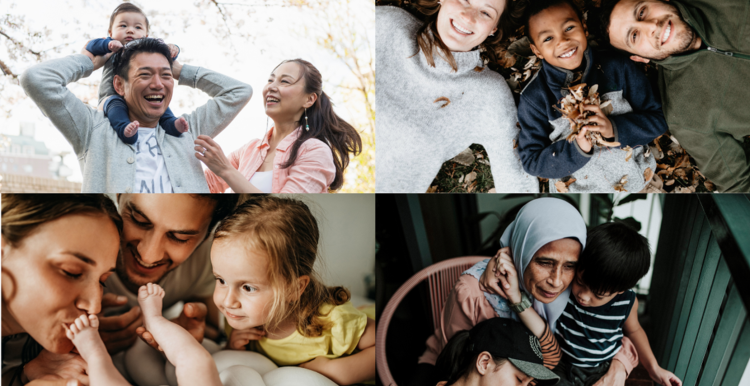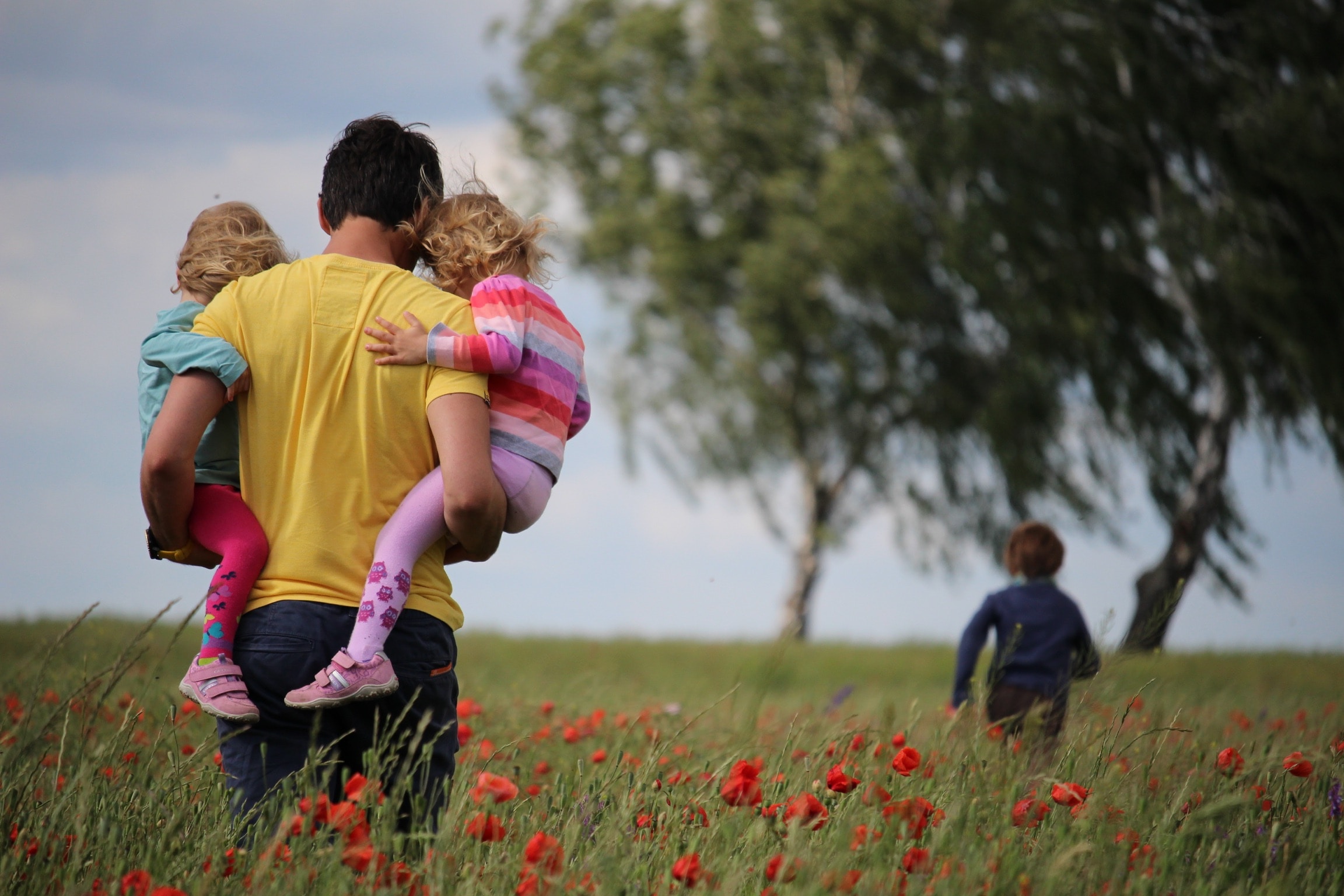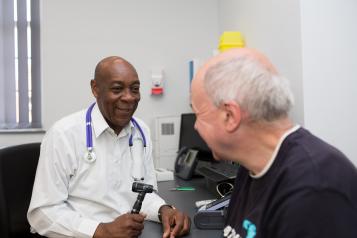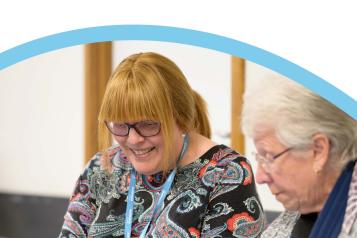Hearing from minority groups

We’re working with Wiltshire Council’s Ethnic Minority and Traveller Achievement Service (EMTAS), and children’s charity Spurgeons to offer support and advice to minority groups.
The current project, which is funded by NHS Charities Together, aims to signpost key medical services and deliver activities to support families’ mental health and wellbeing.
Our work so far
In September 2022, we began our project with EMTAS and Spurgeons, funded by the Armed Forces Covenant Fund Trust, to hear the experiences of Fijian and Nepalese military families.
Healthwatch Wiltshire held two workshop sessions, at Tidworth and Bulford, with members of these communities, where we listened to their feedback on services and offered advice and guidance.
Key themes were the language barrier in making GP and healthcare appointments over the phone; being understood in an emergency; and a lack of understanding about the GP triage system. But all were registered with a GP, reported good experiences of hospital treatment and had no problems with getting the medication they needed. They were also satisfied with the dental treatment they had received.
Our work this year
Our work with EMTAS and Spurgeons has continued in 2023, where we’ve been engaging with Eastern European and Boater communities in a series of sessions.

Support for the Eastern European community
Sessions were held on Thursday mornings during June and July 2023 at the Polish Community Centre, Trowbridge, with interpretation provided in Polish, Romanian, and Ukranian. We were there to provide information and signposting, while Spurgeons ran activities for children and offered practical advice for families.
Session 1 – 29 June 2023
Healthwatch Wiltshire, EMTAS and Spurgeons each explained what they do and how they can help families to access health and care services and support.
Common themes
These included questions around:
- Finding support for children with special or additional needs
- Where to get support for domestic abuse
- Dealing with loneliness and isolation among the elderly
- Accessing GP services.
Overall, there was a lack of knowledge and information on where to go for help and support. The communities want to help themselves but need to know how the system works and where to go. Interpreters are also needed. Those attending said they were pleased with the amount of information and support available and found the session very useful.
Session 2 – 6 July 2023
This session focused on an Introduction to Five and Thrive - five key activities that are the building blocks of healthy communication and brain development - and sharing information about Children’s Centre services.
Spurgeons set up play activities for children, while parents learned about the Five to Thrive ethos and were given a goodie bag for play interactions at home.
Common themes
Parents spoke about older children’s anxieties and asked for support and guidance around supporting emotional needs. Families were signposted to Child and Adolescent Mental Health Services (CAMHS) and were told that Session 3 on mental wellbeing would include advice on supporting children’s feelings and emotions as well as information for parents’ emotional and mental health.
Parents also asked for guidance and support around routines at home and how to support children. Spurgeons shared some resources, such as reward charts, to help with this.
Session 3 – 13 July 2023
For this session, Spurgeons focused on how parents should encourage their children to recognise, understand, and express their feelings and emotions.
Activities were set up to support self-regulation – the ability for us to manage our thoughts, feelings, and actions. They demonstrated included a worry jar, where children can post their anxious thoughts.
Healthwatch Wiltshire gave a brief summary on the type and range of mental health support available in Wiltshire. There was a lot of interest in gardening and outdoor activities that could help people struggling with their mental wellbeing, especially if they were family accessible activities. Trauma from experiences of being in Ukraine, particularly among children, was discussed.
Common themes
- Parents said they felt lonely. Spurgeons offered help setting up toddler groups and gave information on summer holiday events for families.
- Families said it would be useful to have access to independent interpreters who can attend meetings and appointments with them. At the moment they are asked to bring a family member or friend to translate for them, but this is not always suitable. Spurgeons are also looking into getting materials translated into Polish.
- We shared information about our Mental Health Forum and gave examples of activities and groups such as Rethink’s Greener Health Project, Wiltshire Mental Health Inclusion Service for people who are lonely or isolated, and Wiltshire Mind who can offer peer support for anyone experiencing mental health problems. We also discussed various specialist therapies available through voluntary sector organisations such as equine therapy and shared our Mental Health and Wellbeing Support Services lists for adults and children and young people.
- EMTAS provided government information from the Office for Health Improvement and Disparities’ Mental Health: Migrant Health Guide; NHS Better Health Every Mind Matters and Migrant Rights Network.
Session 4 – 20 July 2023
This session was about education and raising children with English as an additional language. Talks were given by:
- Wiltshire EMTAS – on the advantages of being multi-lingual.
- Wiltshire Library – explaining the resources they have, including books in Polish, Romanian and Ukrainian, free computer use and free mobile data, kids clubs, Rhyme Time and Story Time, as well as a warm space in winter.
- Spurgeons – on how they work with children up to the age of 5 through play and books to help learn language skills.
- Family and Community Learning at Wiltshire Council – which offers a variety of courses to support parents and children on topics such as coping with anxiety and applying for jobs.
Feedback
Families seemed reassured by the benefits of raising multi-lingual children. They expressed interest in all the talks and took home goodie bags from Spurgeons.
Case study: Finding free school holiday activities
A woman from Ukraine explained she had arrived with a child in the UK as part of the Homes for Ukraine scheme for families fleeing war.
She sought help and support with activities and food for her child during the school summer holidays. She had previously sought support from her child’s school, but the activities offered all had costs involved. She has not been able to find work and was unable to afford these activities.
EMTAS were able to liaise on her behalf with a local charity that offers youth work provision and programmes during school holidays. The charity agreed to accept the young person onto the programme despite not strictly meeting criteria and that application deadlines had passed. The young person has been able to access support from an experienced youth worker, as well as free activities (including food) during the school holidays.

Support for the Boater community
Sessions were held at the Canal Tavern, Bradford on Avon and the Barge Inn, at Honeystreet, near Pewsey, in late July 2023.
Both sessions were planned more as listening and engagement exercises rather than structured sessions on particular topics.
This was in recognition of the fact that this community is less used to being engaged and less likely to attend topic specific sessions.
Session 1 – Canal Tavern, Bradford on Avon, 21 July 2023
Leaflets had been distributed to boats along the canal from Bradford on Avon to Avoncliff in the week before the event. Comments had been received from boaters at the time which included:
- They found it difficult to access GPs as they did not have fixed address – they were told this was incorrect and that cards setting out their right to NHS services would be available at the event on 21 July.
- Dentistry was almost impossible to access, particularly as most boaters have to move moorings every two weeks.
- There was a lot of ill feeling towards Canal & River Trust: boaters spoke of receiving no clear guidance on how far and how often they had to move, and that it all seemed “random”.
- One elderly boater had arthritis and could not cycle more than 2 miles to local shops to buy food but was not allowed to stay within easy access of the shops by Canal & River Trust.
- Boaters we spoke to at the event echoed theses comments. They felt the decisions made by Canal & River Trust were unfair and the ‘rules’ were not consistent and poorly communicated.
Session 2 – Barge Inn, Honeystreet, 29 July 2023
Feedback from this event included:
- Prescriptions are difficult to collect as they are constantly moving.
- Problems accessing a dentist for routine treatment.
- Uncertainty for women in the Boater community around antenatal care and childbirth due to their constant travelling patterns. They said they were reluctant to engage with health visitors as they didn’t seem to understand the Boater lifestyle.
- Difficultly accessing GP services.
- Lack of public transport in rural areas creates difficulties for the Boater community getting to healthcare appointments as few have a car.
- A young family shared their concerns about getting a school place for their child as they have no fixed address.
Case study: Explaining rights to GP access
A single older man suffered a brain injury after being attacked. He has ongoing medical issues and needs daily medication. He uses the NHS App but finds it difficult to collect prescriptions as he uses his sister’s address in Frome because he does not have a fixed address.
He explained he was not getting the correct dosage of one of his medications and has tried to speak to the [GP] receptionist to have this corrected. She insisted he needs to see a doctor but that is not possible given his travelling pattern.
We were able to give the man a card that outlines his rights to access GP services despite having no fixed address. We directed him to a surgery that is accessible given his current cruising pattern and where we know the needs of the Boater community are well-understood. The man was grateful for being listened to and thanked us for our support.
What's next?
We will continue to engage with minority communities, including Travellers, this year.

